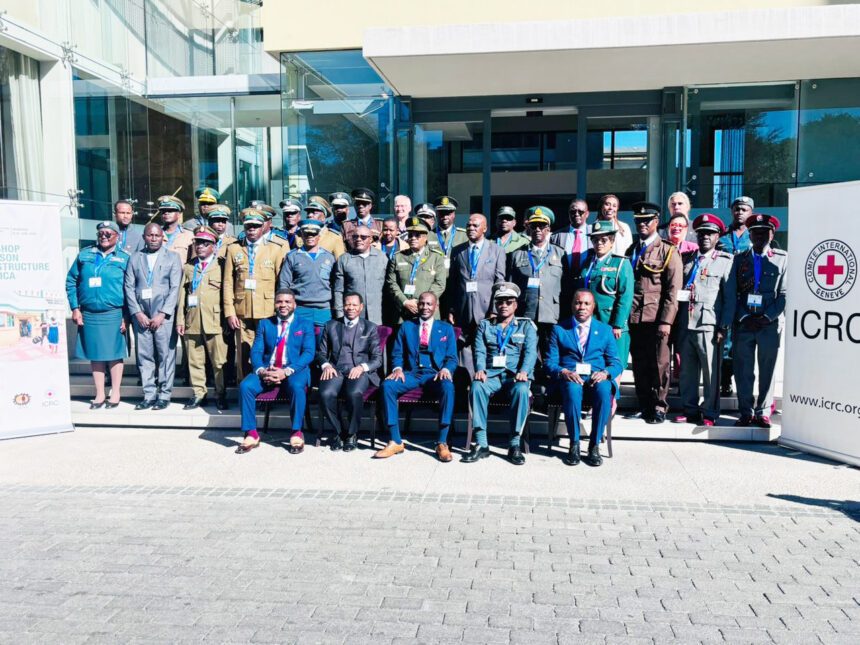Lahja Nashuuta
Minister of Home Affairs, Immigration, Safety and Security, Lucia Iipumbu, has called for urgent and comprehensive reforms of prison infrastructure across Africa, saying most correctional facilities were designed to serve outdated colonial ideologies focused on punishment rather than rehabilitation.
Speaking at the Fifth Workshop on Prison Infrastructure in Africa, currently underway in Windhoek, Iipumbu highlighted that these inherited systems are ill-equipped to support modern correctional philosophies, creating serious operational challenges.
“Our prisons are old and dilapidated, making them unsafe and inhumane for inmates. The situation is further worsened by a rapidly growing inmate population, leading to overcrowding, which undermines rehabilitation and threatens inmate well-being,” she said.
The workshop, which started yesterday and will end on Thursday, brings together prison administrators and experts from across the continent to exchange experiences and best practices. The aim is to develop innovative strategies to improve prison facilities and enhance operational effectiveness.
“These facilities require substantial infrastructural reforms to overcome inherited limitations and align with modern standards of rehabilitation and reintegration,” she added.
Iipumbu acknowledged that addressing these infrastructure challenges is complex, especially in the face of competing priorities like healthcare and education, and within limited budgetary frameworks. Nevertheless, she stressed that shifting from a punitive to a rehabilitative model remains essential.
“This transition is not easy, but it is critical if prisons are to fulfill their purpose of promoting humane custodial care and positive change,” she noted.
Iipumbu cited Namibia as a regional example of this shift, stating that since 2010, the Namibian Correctional Service has been transforming into a modern, professional institution. It adopted the Offender Risk Management Correctional Strategy as a core framework to guide its move toward evidence-based rehabilitation.
She said in order to support this strategy, the Correctional Service Act of 2012 (Act No. 9 of 2012) was enacted, guiding the development of new infrastructure and the upgrading of existing facilities. Projects include the construction and refurbishment of the Evaristus Shikongo, Windhoek, and Hardap Correctional Facilities, among others under the Capital Projects Master Plan.
“This approach is not unique to Namibia. Many African countries are embracing similar reforms, showing a broader continental shift towards more humane and effective correctional systems,” Iipumbu said.
She stressed the importance of collaboration among justice partners, public institutions, and stakeholders to find innovative solutions and make the best use of limited resources.
“I want to commend the International Committee of the Red Cross for its leadership in transforming prison systems across Africa. Their role in promoting rehabilitation-focused models, facilitating expertise exchange, and enhancing prison management has been invaluable,” Iipumbu said.
– lnashuuta@nepc.com.na


